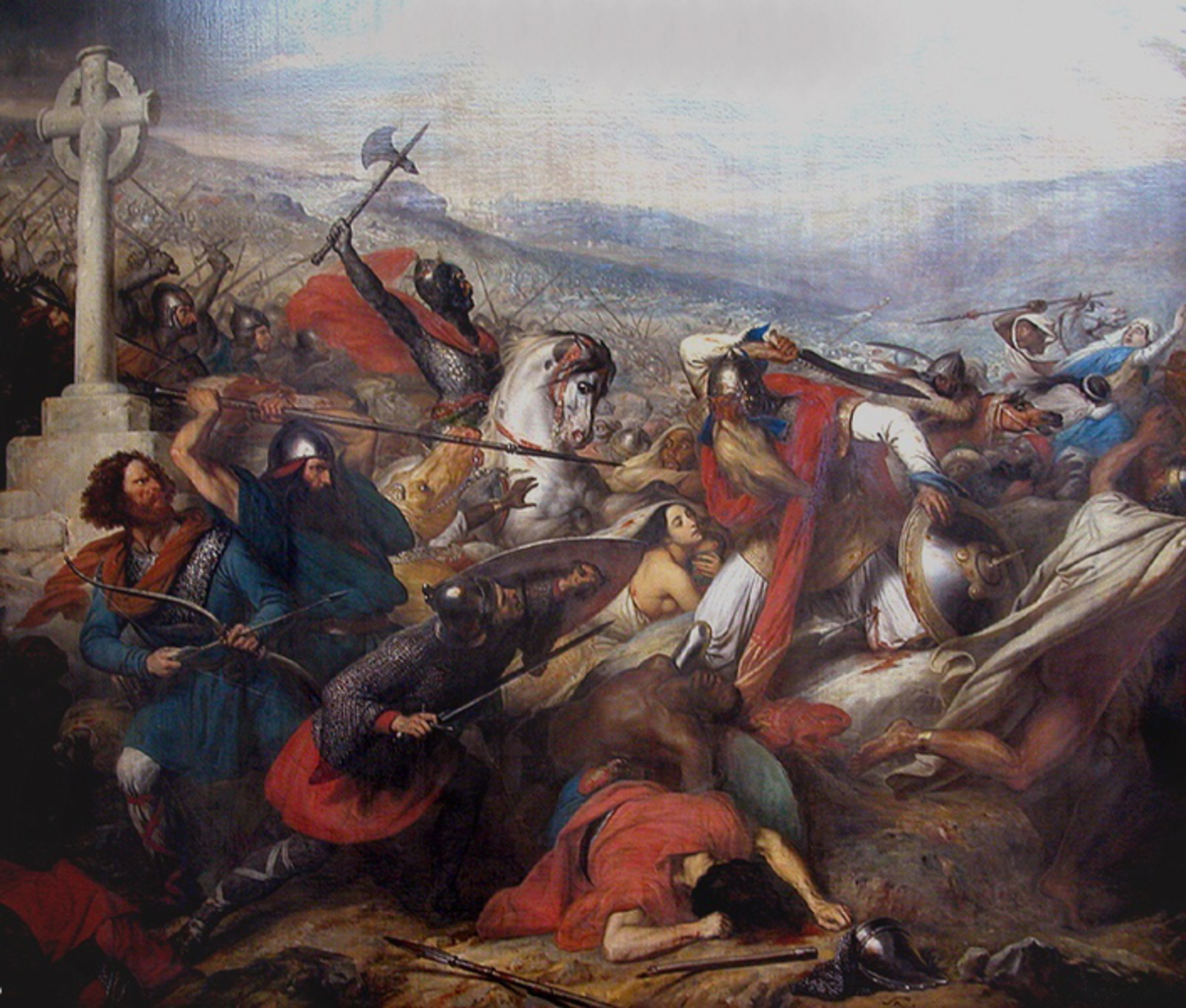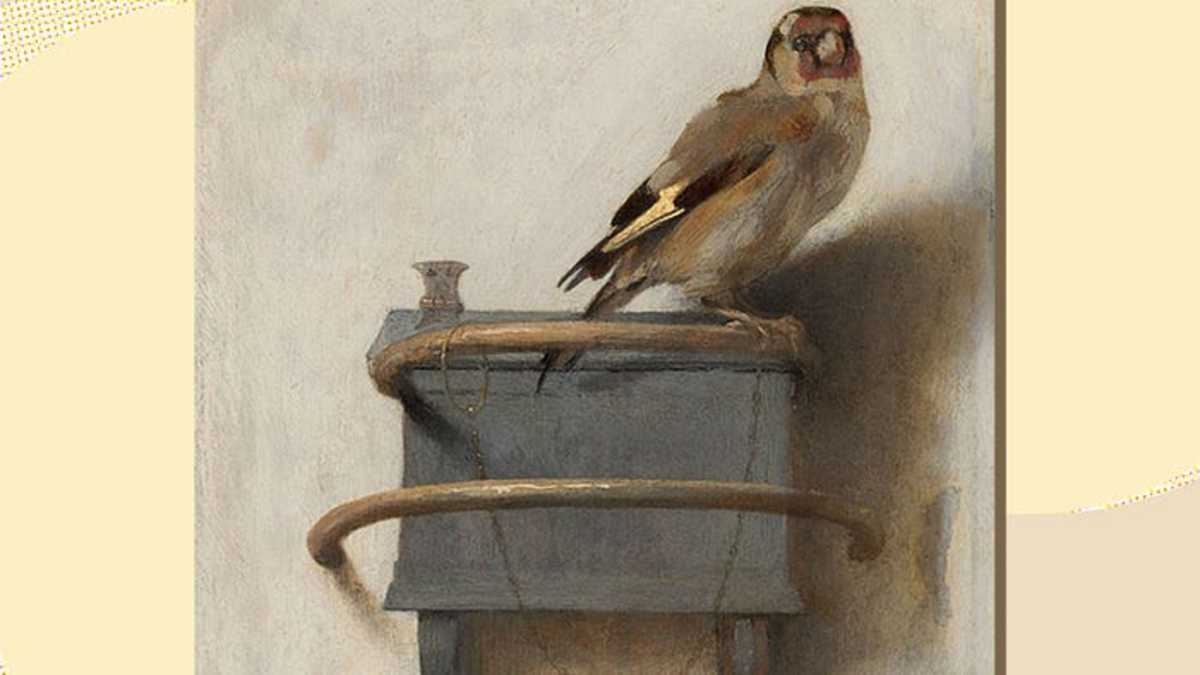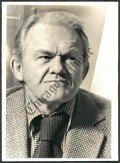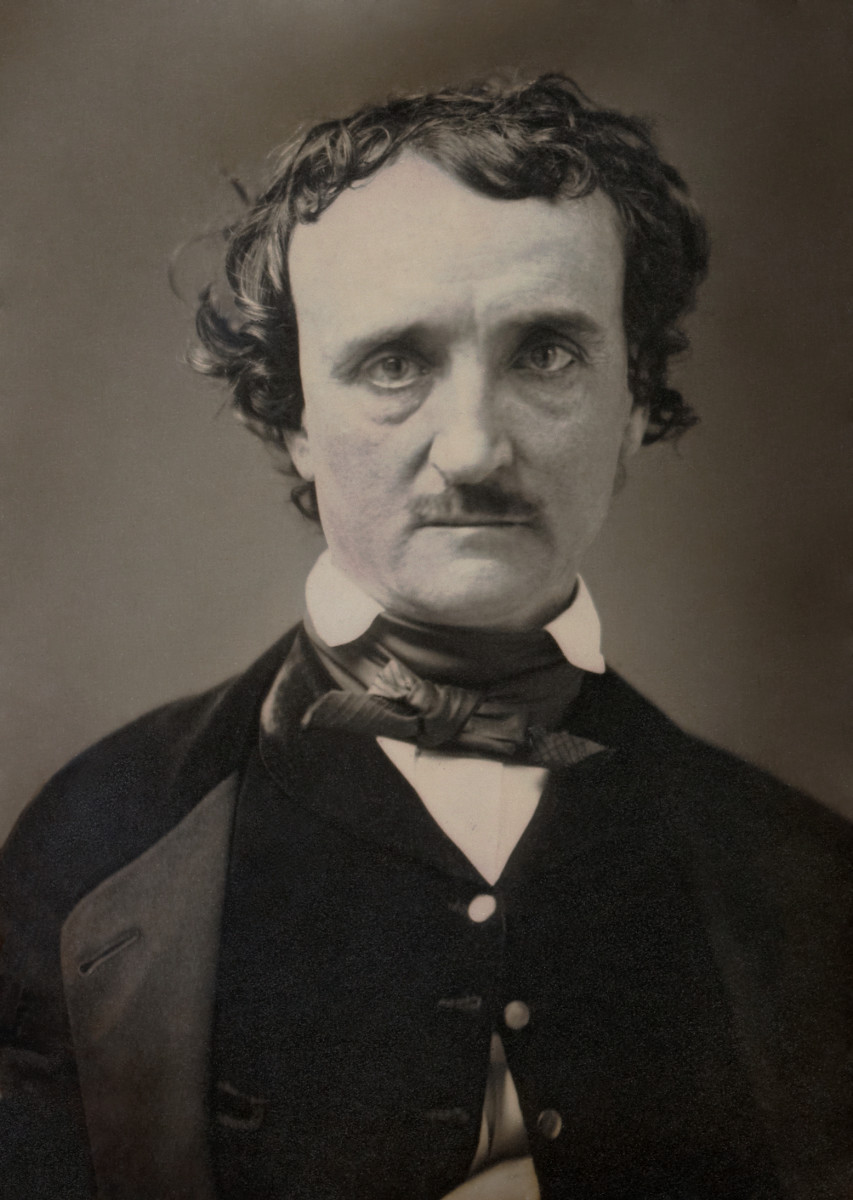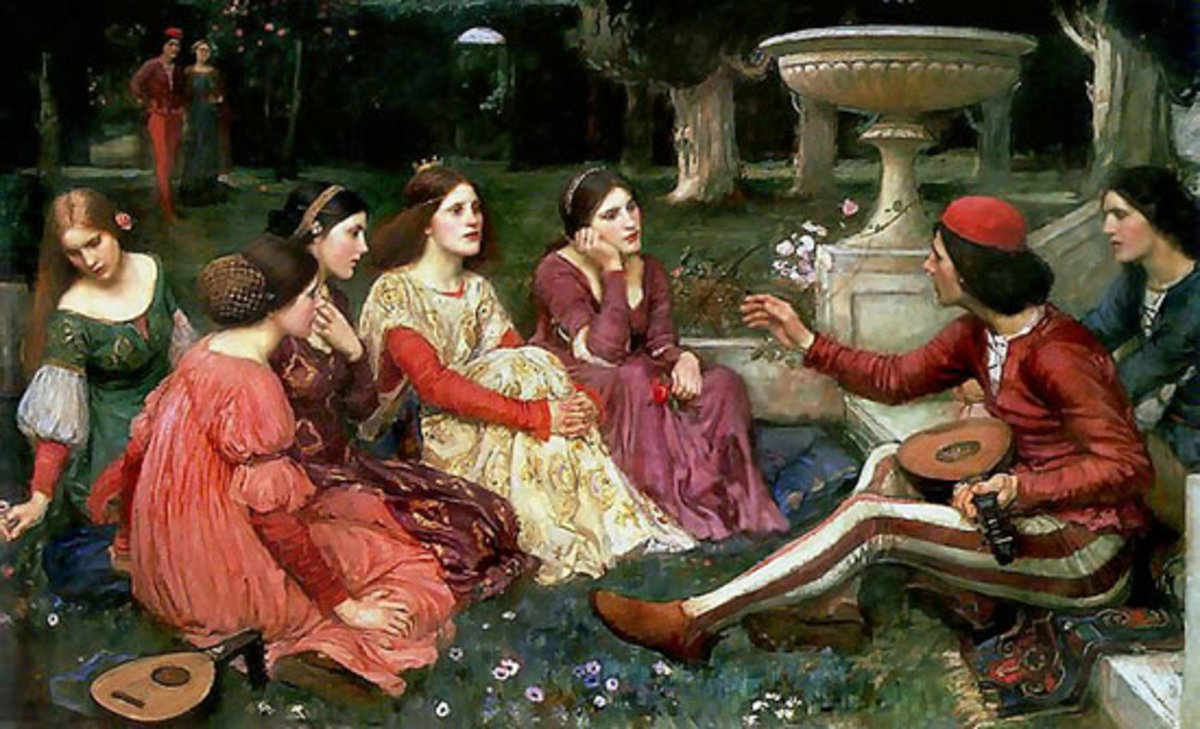Extraordinary Christian Fantasy
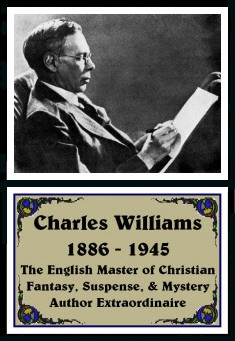
Did you miss Charles Williams' writings?
You shouldn't have, and here's why!
For incredibly gripping, refreshingly unique, fantastic reading, don't miss the writings of Charles Williams. By the way, I am referring to the British author, not the American author who bears the same name.
I discovered him years ago, - well, actually, his books - in my favorite dusty, old bookstore in Florida. How I actually was drawn to them, I don't recall. I bought every one of them that I could find there. Six of my copies have really unusual covers; the most elaborate ones I've seen. In this case, you can judge a book by its cover, at least by the covers on the editions I own, you can!
For as long as I can remember, I have enjoyed the output of Charles Dickens, C.S. Lewis, and J.R.R. Tolkien, but until about 1990, Charles Williams was unknown to me.
Little did I suspect how hopelessly I would be entranced. His writings are unusual, powerful, and convoluted, to say the least. His profound insights into human nature and the divine, are only dwarfed by his profoundness. His works, once read, are never forgotten!
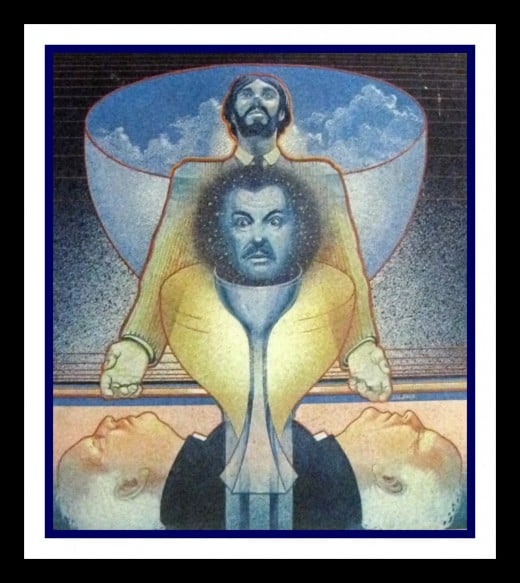
War in Heaven
As the title suggests, there is a war going on! In the first few pages, your mind is assaulted with a nonchalant murder of a nondescript victim. No one seems to be the least concerned about the unfortunate fellow; the characters’ concern is over where it happened and how. The why is merely a trivial annoyance. As the tale unfolds, dark intrigue permeates the pages, as the forces of good and evil energetically – collide.
Written in 1930, the novel is set in London, England and rapidly moves to the countryside, where there are rumors that the Holy Graal resides. Yes, that’s how it’s spelled in the book – “Graal”. We even have timely visits from the legendary Prester John, a.k.a. Prestor John!
The heinous, gloating forces of evil, woven throughout the plot, have underestimated the power of God, as usual. Despite machinations that would make Machiavelli proud, good triumphs over evil in the end. The war that wages between those two opposing forces, will have you on the edge of your seat. By the end of the book, your mind will be exhausted from engaging in cerebral calisthenics, as Charles Williams’ vocabulary is as extensive as his imagination. This is one unusual Christian fantasy novel – not to miss!
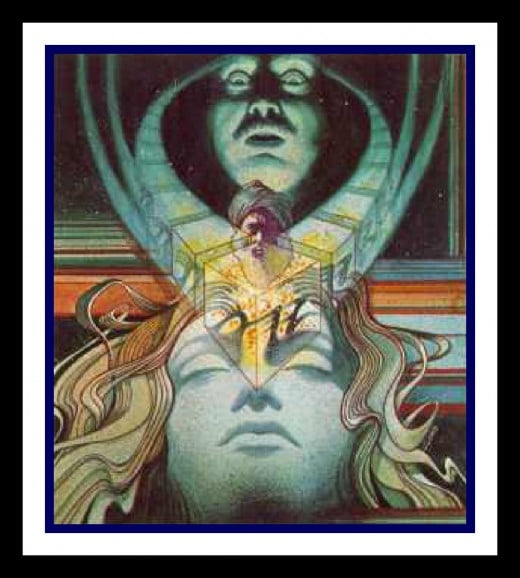
Many Dimensions
True, there are! Who knows how many? Only God...
If you are fascinated with teleportation, time travel, and parallel universes, you will love Many Dimensions, the second of Charles Williams novels, published in 1931. You will grow to detest the main character, Sir Giles, as he attempts to wield the power of the gemstone in King Solomon’s crown. Yes, that’s right – THE King Solomon of the Old Testament, and of history. The villain has obtained though questionable means, the legendary crown which contains the White Stone of the Tetragrammaton.
Tradition attached great significance to the stone, even alleging it to be the source of King Solomon’s incredible wisdom, and of course – Sir Giles thinks that he can utilize the stone, to his own benefit. As often happens to those who attempt to control forces beyond their comprehension, he soon finds himself up against something he didn’t “reckon on”, cannot control, and which threatens to consume him.
Typical of Charles Williams’ novels, the reader is gripped with an intense desire to read the book through – at one sitting. It is a hard one to put down, as the plot develops rapidly and races towards an exciting conclusion – “tangent-traveling” all along the way in Williams’ magnificent style.

The Place of the Lion
All right, what’s the connection between Plato and a lion, a crowned snake, a horse, a phoenix, a lamb, an eagle, a unicorn, an abominable odor, and England? You’ll find out, in Charles Williams’ classic, The Place of the Lion.
Journeying down a serene country road in the UK, one wouldn’t normally expect to see a lion, but in the first few pages – we encounter one. Add a pterodactyl which startles a young lady while she is trying to enjoy her breakfast, and, well...you get the idea.
In a remote village, a lioness is on the loose, recently escaped from a traveling show. There is a “lion hunt” in progress, which rapidly escalates into something else entirely. Two of the main characters, Quentin and Anthony, think they are merely joining in the lion hunt, while on foot to their destination. Much to their shock and horror, they are the only witnesses, when a gigantic larger-than-life lion, strikes a man down and leaves him comatose. Doubting their own eyesight, they decide to keep it to themselves; that does not last very long. Rumors of other “giants” reach their ears, and life as they knew it – comes to an abrupt end.
Somehow, supernatural forces have been unleashed on a tiny village, overcoming its inhabitants with mayhem and apparent insanity. Archetypal animals of colossal proportions appear, and much of the native fauna depart when they do. Needless to say, the populace is thrown into a panic by “happenings” quite foreign to their ordinary, structured lives. Alarm – prevails.
Originally published in 1933, this novel brings its readers face-to-face with the meaning behind the expression – “the nature of the beast” – and is a reading experience you will never forget!
As always, Williams' writing has underlying waves of insight into human nature, and engages its readers so thoroughly, that they tend to examine the innermost workings of their own hearts, and find areas that could use some spiritual improvement.
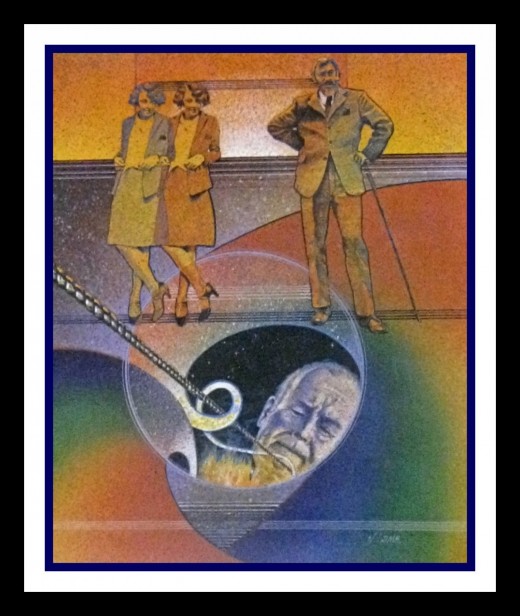
Descent Into Hell
By far, this novel is considered the most popular, and it is also the most controversial of Williams’ novels, as it deals with a succubus – a demonic spirit that visits human beings in their sleep, and attempts to engage them in intimate relations. That is not subject matter normally found in Christian literature, but Charles Williams’ incorporates it into this novel genteelly, and with his usual tasteful finesse. I must tell you – it is not my favorite. I have enjoyed some of his others much more.
Pauline, the heroine of the novel, repeatedly encounters her doppelgänger – from the German – “double-goer” – an apparition of one’s self. Her startling experience determines the path she takes, while terrifying her all of the while. Throughout the novel are references to Shakespeare, Shelley, and Lilith – demonstrating Charles Williams’ passion for the classics.
If you are going to read this one, be prepared to be by yourself and undisturbed, as the psychological meanderings engaged in by Williams require a great deal of attention. Originally rejected by several publishers, it was finally printed in 1937, and went on to be considered his most important work.
Despite the New York Times review, which stated - “It is satire, romance, thriller, morality, and glimpses of eternity all rolled into one.” - it was not the one I enjoyed the most. Evidently, my taste is skewed!
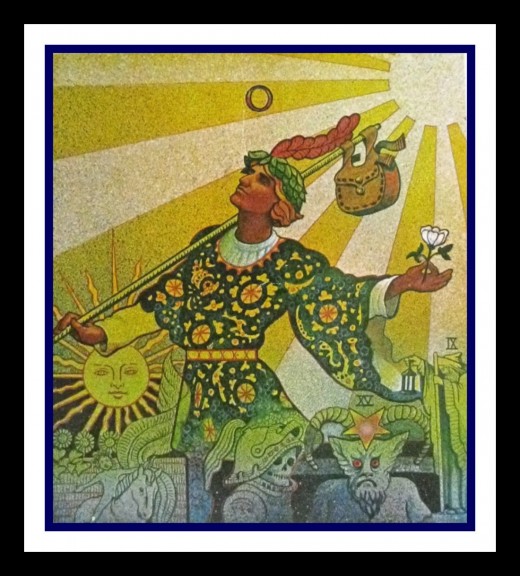
The Greater Trumps
Ah, the wandering minstrel! How appropriate for the cover of Williams’ The Greater Trumps, which was unveiled to the public in 1932. As he illustrated in his other novels, once again man is tampering with supernatural forces best left – alone, and as usual – there is hell to pay.
Very few books mix Tarot Cards with Christianity, but Williams has done exactly that, and quite successfully, too.
To whet your appetite for this novel, here are the titles of the first six chapters:
- The Legacy
- The Hermit
- The Shuffling Of The Cards
- The Chariot
- The Image That Did Not Move
- The Knowledge Of The Fool
It all starts with a set of Tarot cards, a rare, specific set of Tarot cards, reputed to be the first ever created. How they came into the possession of Mr. Coninsby, I am not at liberty to tell – you’ll have to read it yourself to find out. His daughter is engaged to a gypsy, and we all know that gypsies and tarot cards historically, go hand-in-hand. Shortly after Mr. Coninsby acquires the cards, a conspiracy is afoot to relieve him of the responsibility of ownership – fostered, of course, by the patriarch of the Romanian gypsies. To him, acquiring the Tarot cards is akin to a Christian acquiring the Holy Grail or “Graal”, as Williams’ spells it, in War in Heaven. Amidst the schemes, the mystical maleficent machinations, the suspense of the “chase” for the cards, all of the figures on the Tarot cards play a vital role in the character’s lives, and at the end – prove to determine their own fate.
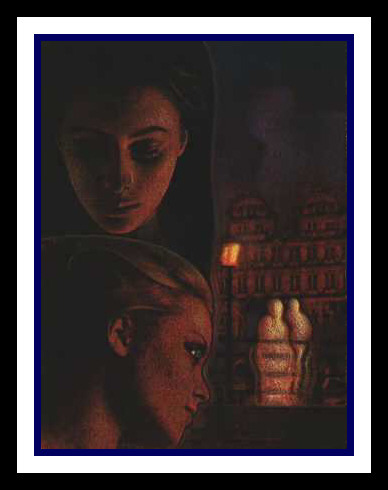
All Hallows' Eve
Our initial encounter with any characters in Charles Williams’ All Hallows' Eve is with two young ladies – dead ladies. They do not know they are dead; well, not at first – they don’t.
One of them, Lester, has only been married for six months; still a newlywed. The other, Evelyn, is yet unmarried. For a time, they are oblivious to their own demises, and marvel at the unpopulated metropolis around them. Gradually, they come to understand their altered states, and travel together through the familiar paths of their past earthly lives.
Both of them were schoolmates of another, Betty, who was spawned by one of Satan’s minions – Simon. As thoroughly as Lester and Evelyn are unaware they have passed into immortality, Betty is unaware of her true sire. Her mother is completely consumed by the girl’s father – an internationally known “healer” and “religious” leader. I use the term “religious” loosely, as the only religion he truly espouses, is the worship of himself.
As fate would have it, a young, gifted artist named Jonathan has fallen in love with Betty. Her mother will have “none of it”, and thwarts his every attempt to contact her. One of his acquaintances just happens to be Lester’s husband. Between the two of them, and with divine intervention, they turn the tables on Simon, and decimate the horror that he intends to inflict on his daughter, and the world.
The novel runs the gamut of plots and emotions, from desperation to joy, mysticism, to “fake healings”, romance to hatred, mystery to comedy; the living and the dead alike experience entities that should not exist, and come to a realization of what it means to be “born again”.
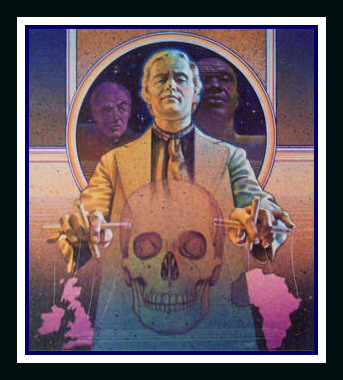
Shadows of Ecstasy
Who wouldn’t want to live forever? Wouldn’t you? Now, hold on a moment – come and let us reason together…
Realistically, being a human being is 100% fatal, at least on this “plane of existence”. Death is a foreign experience, a new adventure – dreaded by many, welcomed by some – and common to all men . Oh, I know – Enoch was translated, and Elijah was taken “out of here” in a fiery chariot, but with rare exception – every single one of us shall die – to face the unknown of the next life, individually.
The main character in Shadows of Ecstasy, Considine, attempts to prolong his life here on Earth, forever, through fair means or foul. He favors – foul. When we make his acquaintance, he is well on his way. His maniacal mind has envisioned him ruling the entire world, with subterfuge and stealth, precisely as powerful men of extreme wealth rule our Earth – today.
He is the diabolical catalyst that sparks a continent-wide African rebellion, which smolders with threats of annihilation for all “white men”. Using supernatural means, cloaked in mysticism and satanic symbolism, from London he attempts to control the conflict.
The “chance” discovery of a 50-year old photograph becomes the instrument of his undoing – as it spurs the retired doctor who “snapped it”, to investigate. Remarkably and unbelievably, the doctor had taken it with his own camera, when he was only 12 years old. Introduced to Considine at a scholarly gathering, he vividly remembered the way our villain held his hands, and vaguely recognized the man’s face. Providentially, the doctor had just viewed the photograph a few days before the meeting, and confronts Considine with it, who then admits to being at least 200 years old.
The admission is confirmed by Inkamasi, an African Zulu chief, whom Considine brought to England with him, and whom he utterly controls through mystical means. Inkamasi verifies that Considine was known to his father, and his grandfather, and his great-grandfather. Unbeknownst to Considine, Inkamasi had become a Christian – which ultimately breaks Considine’s hold over his soul. As you know, all good things must come to an end, and in this case – a bad thing comes to an end, but not without taking the reader through Williams’ usual extraordinarily written literary journey.
Written by Williams in 1925, but not published until 1933 – Shadows of Ecstasy is just as fresh and pertinent today, as it was then. I consider it one of his best novels, not only is it riveting reading; in a few places it is funny – very, very funny. I have often laughed aloud reading it, while at the same moment, racing to read what shall happen next. If you love an “unusual read”, this one fills the bill!
I LOVED this book!
Who WAS Charles Williams?

Good question! As far as I am concerned, Charles Walter Stansby Williams was a genius. Born in 1886, he lived in England his entire life, until his passing in 1945. Among a few other things, he worked for the Oxford University press, who published their first book in 1478, over 500 years ago!. That is quite a long-established enterprise, wouldn’t you say? He wrote plays, novels, poetry, book reviews, biographies – the list is extensive. Literarily speaking, the man was prolific, to say the least.
He was a contemporary of C.S. Lewis, who wrote the classic, ever-popular Chronicles of Narnia. He was also a member of the Inkling’s, basically a gathering of men, who met together during the 1930′s and 1940′s to discuss, and debate literary works. C.S. Lewis, J.R.R. Tolkien, and Charles Williams were considered sort of the “hub” of the meetings, which were held in various pubs, in Oxford, England.
For a great synopsis on the Inklings, see this web page: Looking for the King.
My own opinion of Charles Williams, is that he was one incredibly brilliant man, who loved God intensely – but certainly would not fit into anyone’s preconceived notion of a Christian. Rarely did he ever actually use the word God, or Jesus Christ, or refer to Christianity in the usual manner. I call it talking, or writing – “Christianese”. I do try to avoid it, and so did he – for the same reasons, I am convinced.
Reading his works, you instinctively know what he believed, and if you were not a believer before browsing among the brambles, briars, and barbs of his books, you will be when you are finally finished. The “barbs” prick at the heart, and the “brambles and briars” tear at your beliefs. Williams saw beyond the superfluous traditions that often define “religion” – down to the very heart and soul of man, and to the heart of the Heavenly Father. Asked to describe him, I would venture to say it would go like this:
Charles Williams – a man ahead of his time; his spiritual discernment was par excellence. He was humble, passionate, compassionate, dedicated to the truth, devoted to his fellow man, timeless, one who possessed the essence of the truly gifted. Tragically – Williams is usually greatly underrated, and always –mistakenly overlooked.
TO DESCRIBE WILLIAMS’ WORKS IN ONE WORD – “UNPARALLELED”.
This Will Help Explain "Who He Was"!
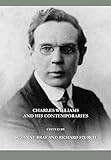
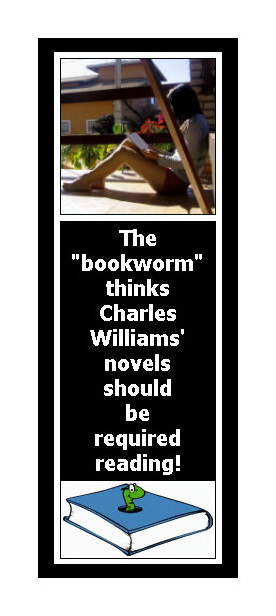
The Bookworm and I Agree!
I have always felt that Charles Williams' works were dynamic "sleepers".
Although well known in his time, I have only met one person who ever read his works - aside from me, of course. That has always struck me as "odd", because his writings are so incredibly different from what is "mandatory reading" or "required reading" in public schools, and from the genre of modern literature. Had I been required to read his works, when I was in high school, I'd have been enthralled.
My opinion is that his intricate plots are a lot more exciting to read than what we were assigned. I recall having to read Travels with Charlie, - boring - Look Homeward, Angel, - huh? - Lord of the Flies - disgusting - and Brave New World - inappropriate...and there were others. I found them tedious, trivial, and a waste of my reading time. Who makes up those lists, anyway? Why don't they ask some "bookworms" for suggestions?
At any rate, there is more information to be found, at the links below, on Charles Williams. I hope at least some of you will enjoy his output, as much as I have. If you digest just one of his novels, you will crave the rest!
All Seven Books That We Mentioned - in One Volume

Photo Credits
For the exquisite artwork that is decorating the photos next to each book I have discussed, the credit goes to Jim Lamb.
I took all of the photos, from my own copies of the editions that were printed in 1983, by William B. Eerdmanns Publishing Company from Grand Rapids, Michigan. - E. Tack
Unfortunately, most editions of his works did not bear these spectacular covers.
Winter and Hurricane Reading
When the weather is nice you may have too much going on, to relax and "park", and read. However, lots of you live where the weather is bitter cold, in the wintertime, and you are house-bound. I live in an area where we have severe storms and occasionally, hurricanes.
You might just wish to get Charles Williams' books, and tuck them away for the times when staying at home, curled up in a chair with a book, seems like a splendid idea!
The Inklings


Charles Williams Poll
Where Do You Stand, When It Comes To Charles Williams?
More Information About Charles Williams
- The Charles Williams Society
What more can I say? This link is extremely comprehensive, and covers his writings, his quotes, and articles about him. Enjoy! - The Novels of Charles Williams by Glen Cavaliero
From "The Lost Club Journal" If you love the works of Charles Williams, or just want to read more about him from one who knows his works - this one is not to be missed! - Wikipedia Remembers Charles Williams
This is an informative article on Wikipedia, about Charles Williams, and links there to other places you can find out more about this amazing man! - Photos of Charles Williams, places he frequented, some of his works.
Here are some photos of Charles when he was young, a look at his wife - Florence, a sample of his handwriting, photos of places he frequented, and some other photographs you might enjoy. Just a page long, it is interesting viewing. - Charles Williams - An Overview
From York University in Toronto, Canada - here's a one-page bibliography for our amazing author.
Please Let Us Know, Below...
If you have ever read any of his works, or if you would like to, let us know.
If you’ve even enjoyed reading about his works, and this tiny glimpse into his world, we’d like to know that, too!
We would really love to see more avid readers experience Charles Williams "Wild World of Wonderous Works", as we call them.
© 2014 Emily Tack



